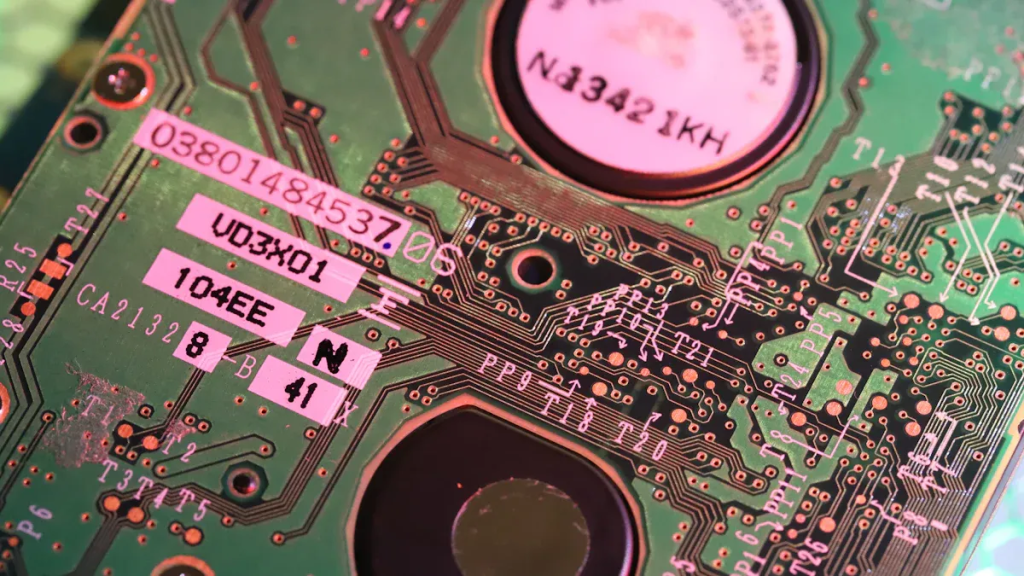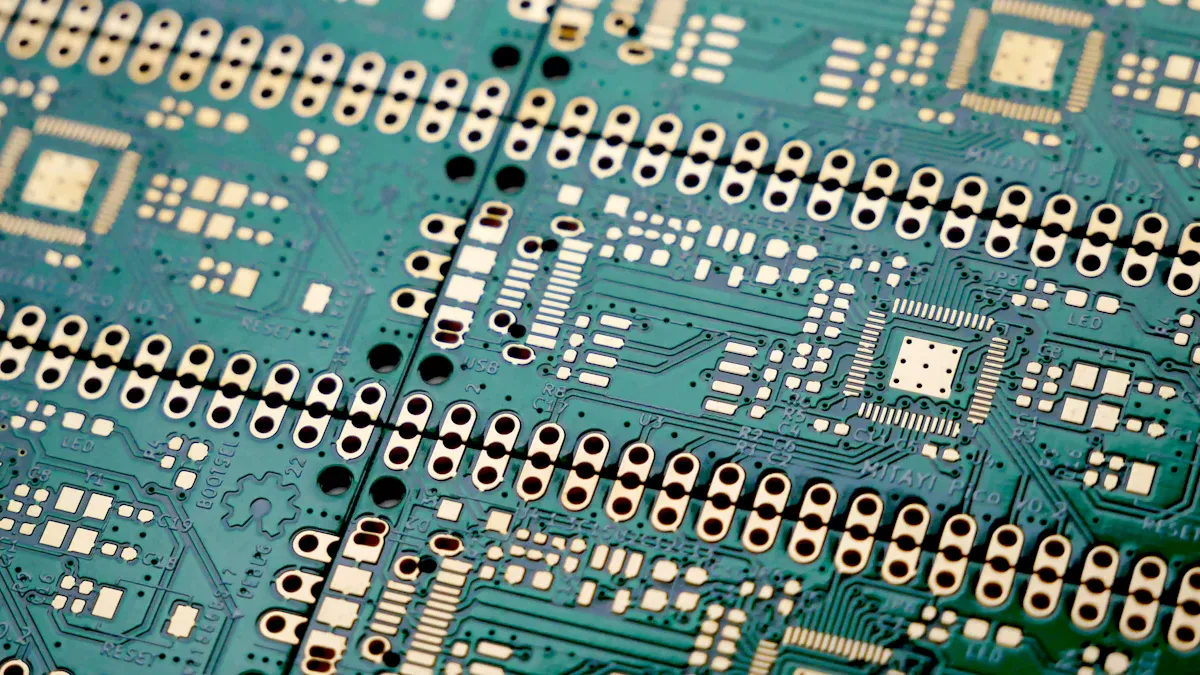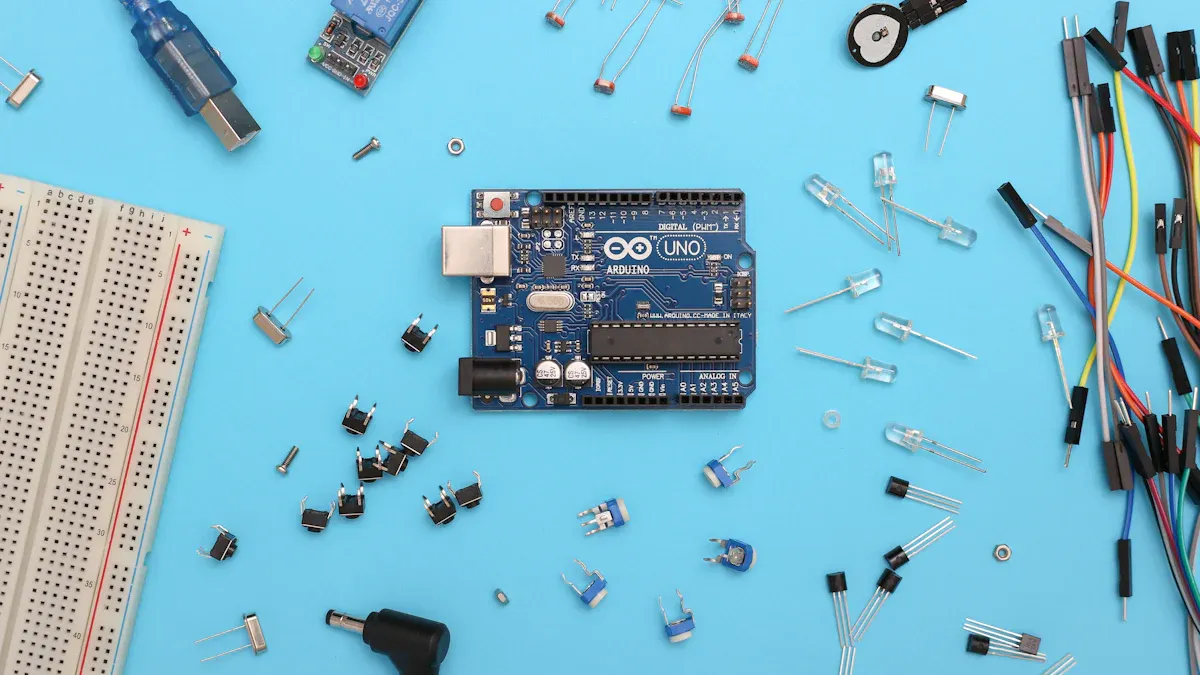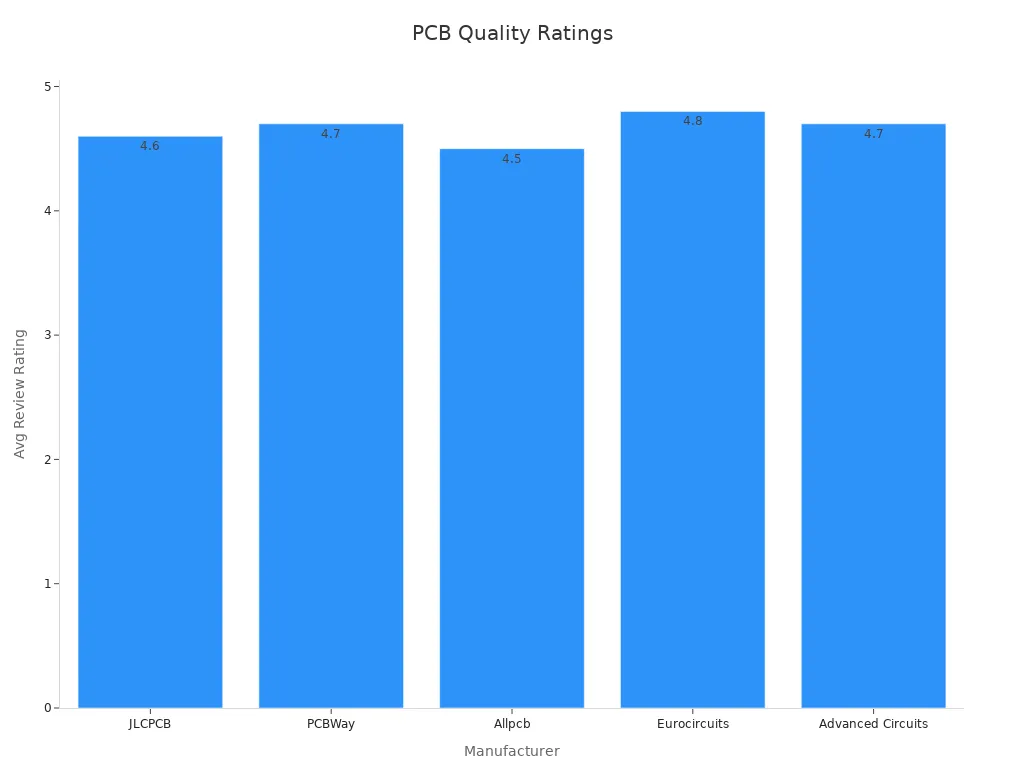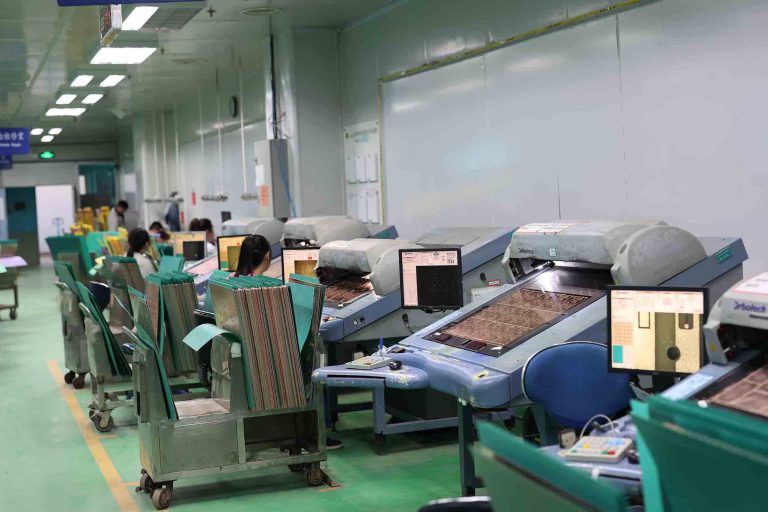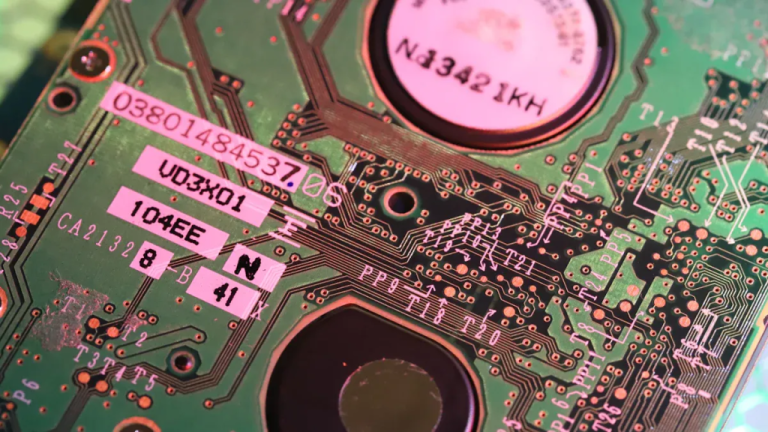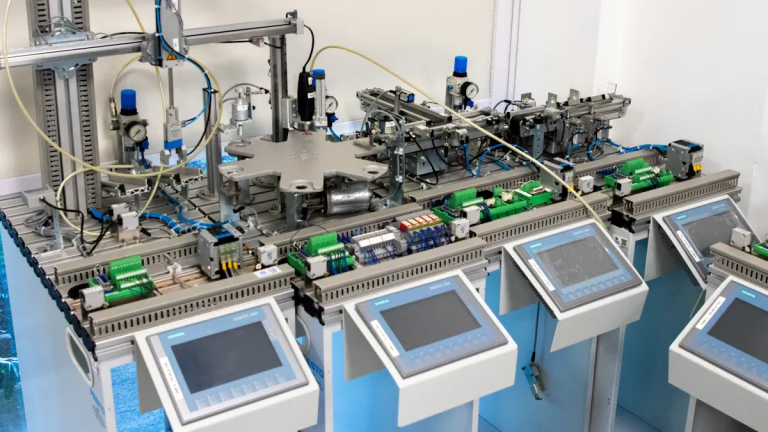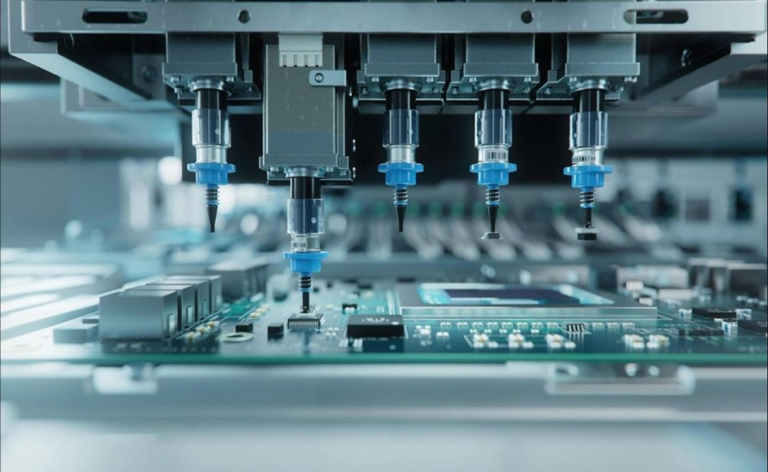Choosing the right PCB manufacturer is crucial to the success of your project. Reliable pcb manufactures ensure your designs are executed with precision, while a poor choice can lead to delays, defects, and budget overruns. Quality, cost, and delivery time are the three essential pillars of successful PCB manufacturing, and neglecting any one of these can jeopardize your goals.
Did you know that 95% of manufacturing businesses focus on optimizing just 1% of their costs, often at the expense of quality and flexibility? This underscores the importance of viewing pcb manufactures not merely as suppliers but as collaborative partners. By carefully balancing material selection, design complexity, and production timelines, you can achieve both cost efficiency and exceptional quality.
Key Takeaways
- Focus on quality by picking manufacturers with ISO 9001 certification.
- Check costs, but know the cheapest may not mean best quality.
- Pick manufacturers with on-time delivery to avoid project delays.
- Begin with small orders to test reliability before bigger orders.
- Look at customer support to ensure smooth work and fast fixes.
Key Factors to Compare PCB Manufacturers
Evaluating Quality in PCB Manufacturing
When it comes to printed circuit boards, quality is non-negotiable. You need a manufacturer that prioritizes defect-free production through rigorous testing methods. Leading PCB suppliers often employ advanced inspection techniques, including automated optical inspection (AOI) and X-ray analysis, to ensure reliability. Over the last 25 years, PCB manufacturing companies have integrated artificial intelligence into their processes, reducing costs while enhancing performance. This evolution allows manufacturers to document reductions in defect categories and maintain a proactive quality control culture.
Certifications like ISO 9001 and IPC-A-610 are essential indicators of quality. They demonstrate compliance with industry standards and ensure your boards meet safety and performance requirements. By choosing manufacturers with these certifications, you can trust their commitment to delivering high-quality products.
Understanding Costs and Finding Affordable PCB Manufacturers
Balancing cost and quality is crucial when selecting PCB manufacturers. Affordable PCB manufacturers like JLCPCB and DirtyPCBs offer competitive prices, making them ideal for prototypes and small-scale projects. For example, JLCPCB provides pricing as low as $5 for 10 boards, with a lead time of 3-7 days. However, pricing isn’t the only factor to consider. Manufacturers like PCBWay may charge slightly more but offer faster turnaround times and better options for advanced boards.
Here’s a quick comparison of pricing and features among some of the best PCB manufacturers:
| Manufacturer | Price Range (USD/10 boards) | Lead Time (Days) | Typical Board Specs | Pros | Cons |
|---|---|---|---|---|---|
| DirtyPCBs | $10 – $25 | 7-14 | 2 Layers, 100x100mm, FR4 | Extremely Low Cost, Good for Simple Prototypes | Longer Lead Time, Limited Options, May have Quality Issues |
| JLCPCB | $5 – $20 | 3-7 | 2 Layers, 100x100mm, FR4 | Low Cost, Faster Lead time, Wide range of options | Quality may vary, Customer support can be slow |
| PCBWay | $10 – $30 | 3-7 | 2 Layers, 100x100mm, FR4 | Fast Lead Times, good options for advanced boards | Can be more expensive than others for basic PCBs |
By conducting an in-depth comparison of pricing and features, you can identify manufacturers that align with your budget without compromising on quality.
Delivery Time: Ensuring Timely Project Completion
On-time delivery is critical for meeting project deadlines. Manufacturers offering quick-turn options can deliver boards in as little as 2-3 days for up to 8 layers. For more complex designs, such as 8-18 layer boards, lead times may extend to 5 days. Standard delivery options typically take up to 20 days, which might suit less urgent projects.
| Delivery Option | Lead Time | Description |
|---|---|---|
| Quick Turn | 2-3 days | For up to 8 layers, domestically manufactured. |
| Quick Turn | 5 days | For 8-18 layer multi-layers, both offshore and domestically manufactured. |
| Standard | 20 days | Regular lead time for production. |
Flexibility is another key factor. The best PCB manufacturers adapt to urgent requests without compromising quality. By choosing manufacturers with proven turnaround times, you can ensure your project stays on track.
Additional Considerations: Certifications and Customer Support
When choosing a PCB manufacturer, certifications and customer support play a vital role in ensuring a smooth and reliable experience. These factors not only reflect the manufacturer’s commitment to quality but also provide you with peace of mind throughout the production process.
Why Certifications Matter
Certifications act as a seal of trust, proving that a manufacturer adheres to strict industry standards. For example, ISO 9001 certification demonstrates a commitment to delivering high-quality products and services. Manufacturers with this certification follow rigorous quality control processes, reducing the risk of defects in your PCBs.
Other certifications, such as ISO 14001:2015 and ISO 45001:2018, highlight a company’s dedication to environmental management and workplace safety. If your project involves medical devices, ISO 13485:2016 ensures compliance with specialized quality requirements. Here’s a quick overview of key certifications:
| Certification Name | Description |
|---|---|
| ISO 14001:2015 | Environmental Management System |
| ISO 45001:2018 | Occupational Health and Safety Management System |
| ISO 13485:2016 | Quality management for medical devices |
By selecting a certified manufacturer, you can trust their processes and focus on achieving your project goals.
The Importance of Customer Support
Strong customer support ensures effective communication and quick problem resolution. Whether you need updates on your order or assistance with technical issues, a responsive support team can save you time and frustration. Manufacturers with robust customer service often provide multiple communication channels, such as email, phone, and live chat, to address your concerns promptly.
Additionally, compliance with standards like NIST ensures that your data remains secure during the manufacturing process. This is especially important for projects involving sensitive or proprietary designs.
By prioritizing certifications and customer support, you can build a reliable partnership with your PCB manufacturer and avoid unnecessary setbacks. These considerations will help you stay on track and deliver high-quality results.
Comparative Analysis of the Best PCB Manufacturers
Manufacturer A: Quality, Cost, and Delivery Time
Manufacturer A, JLCPCB, stands out for its affordability and quick pcb prototype services. With competitive prices starting as low as $5 for 10 boards, it caters to projects requiring low-cost prototypes or small production runs. Its specialization in simple designs ensures you get high-quality output without overspending. JLCPCB also excels in on-time delivery, offering lead times as short as 24 hours for prototypes and 3-7 days for standard production.
However, JLCPCB’s limited material options and customization may not suit complex designs. Despite this, its online ordering system and consistent quality make it a top choice for budget-conscious projects.
| Metric | Description |
|---|---|
| Defect Rates | Low, ensuring reliable boards for prototypes and small runs. |
| Return Rates | Minimal, thanks to rigorous quality checks. |
| Order Accuracy | High, with most orders fulfilled correctly. |
| Lead Time | Short, enhancing responsiveness to tight project requirements. |
Manufacturer B: Quality, Cost, and Delivery Time
PCBWay is a versatile option among the best pcb manufacturers, offering a balance of quality and cost. Its pricing is moderate, with bulk discounts available for larger orders. PCBWay specializes in complex PCB designs, including multi-layer boards and SMT assembly, making it ideal for advanced projects. The manufacturer ensures high-quality boards through comprehensive testing and maintains a lead time of 3-5 days for prototypes and 7-15 days for production.
PCBWay’s slightly higher price compared to JLCPCB is justified by its broader range of services and customization options. If your project demands reliability and advanced features, PCBWay is a strong contender.
Tip: PCBWay’s SMT assembly services can save you time and effort, especially for intricate designs.
Manufacturer C: Quality, Cost, and Delivery Time
Eurocircuits focuses on delivering high-quality products for complex and high-reliability applications. While its pricing is higher than other pcb manufacturers, it justifies the cost with exceptional quality and comprehensive testing options. Eurocircuits specializes in high-layer count boards and advanced materials, making it a go-to choice for aerospace, medical, and industrial projects.
The lead time for Eurocircuits ranges from 5-10 days for prototypes to 10-20 days for production. Although longer than some competitors, this ensures meticulous attention to detail. If your project prioritizes quality over speed, Eurocircuits delivers unmatched results.
Note: Eurocircuits’ higher cost of pcb fabrication is offset by its reliability and ability to meet stringent project requirements.
Summary of Key Differences Among the Best PCB Manufacturers
Choosing the right PCB manufacturer can feel overwhelming, but understanding their key differences makes it easier. Each manufacturer excels in specific areas, and your decision should align with your project requirements.
- JLCPCB: If you prioritize affordability and quick turnaround times, JLCPCB is a strong contender. Its pricing starts as low as $5 for 10 boards, making it ideal for prototypes or small-scale projects. However, its limited customization options may not suit complex designs. JLCPCB’s focus on cost-effective solutions ensures you get reliable boards without overspending.
- PCBWay: PCBWay strikes a balance between quality and cost. It offers advanced features like multi-layer boards and SMT assembly, making it suitable for intricate designs. While its price is slightly higher than JLCPCB, the added value in terms of customization and reliability justifies the investment. PCBWay’s lead times are competitive, ensuring your project stays on schedule.
- Eurocircuits: For high-quality products and complex applications, Eurocircuits stands out. Its rigorous testing processes and attention to detail make it a top choice for industries like aerospace and medical. Although its pricing is higher, the unmatched reliability and ability to meet stringent project requirements make it worth considering. Eurocircuits is perfect for projects where quality takes precedence over cost.
Tip: Use customer reviews to validate your choice. They provide real-world insights into each manufacturer’s strengths and weaknesses.
By conducting an in-depth comparison, you can identify the best PCB manufacturers for your needs. Whether you value affordability, advanced features, or exceptional quality, there’s a manufacturer that fits your goals.
Insights from User Experiences and Reviews
Common Feedback on PCB Manufacturers
User reviews provide valuable insights into the performance of PCB manufacturers. Many customers highlight the importance of quality, cost, and delivery time in their feedback. Leveraging this feedback can improve customer retention by up to 20%, which directly impacts revenue growth. Manufacturers with a Customer Satisfaction Score (CSS) above 8 often excel in product quality and customer service. These companies typically achieve revenue growth rates 10% higher than their competitors.
Understanding customer needs allows manufacturers to refine their processes and exceed expectations. For example, some users praise manufacturers for their quick turnaround times and defect-free boards, while others emphasize the importance of responsive customer support. By analyzing these trends, you can identify manufacturers that align with your priorities.
Success Stories and Challenges in PCB Manufacturing
PCB manufacturing has seen significant advancements, but challenges remain. Success stories often involve the use of predictive modeling and automation to enhance efficiency. For instance, decision tree models have achieved precision scores exceeding 82% in defect detection, reducing production errors and costs. Automation also plays a critical role in streamlining processes and improving output quality.
| Evidence Type | Description |
|---|---|
| Predictive Modeling | Early defect detection through predictive modeling improves reliability. |
| Automation Importance | Automation reduces costs and enhances manufacturing efficiency. |
| AI Role | AI-driven processes improve defect prediction and management. |
| Experimental Results | Decision tree models show high precision in identifying defects. |
| Environmental Impact | Early defect detection minimizes waste, benefiting the environment. |
However, challenges like material shortages and complex designs can delay production. Manufacturers that invest in advanced technologies and robust supply chains often overcome these hurdles, ensuring consistent quality and timely delivery.
Using Reviews to Identify the Best PCB Manufacturers
Online reviews are a powerful tool for evaluating PCB manufacturers. Start by examining testimonials and case studies to identify recurring issues or positive experiences. Look for independent reviews on platforms like Google Reviews and Yelp to gauge reliability and product quality. Contacting previous customers can also provide firsthand insights into a manufacturer’s strengths and weaknesses.
Pay attention to patterns in feedback. Consistently high ratings for quality and delivery time indicate a reliable manufacturer. Conversely, frequent complaints about defects or delays should raise red flags. By analyzing reviews, you can confidently choose the best PCB manufacturers for your project.
Practical Tips for Choosing the Right PCB Manufacturer
Matching Manufacturer Capabilities to Your Needs
Choosing a PCB manufacturer that aligns with your project’s specific needs is essential for success. Not all manufacturers are equipped to handle every type of project, so you must evaluate their capabilities carefully.
| Factor | Importance |
|---|---|
| Volume Production Needs | Ensures that the manufacturer can meet the required quantity without compromising quality. |
| Responsiveness Urgency | Critical for projects that require quick turnaround times to meet market demands. |
| Technology Competence | Aligns the manufacturer’s expertise with the specific technological requirements of the project. |
If your project involves high-volume production, look for manufacturers with proven scalability. They should deliver consistent quality while managing resources efficiently. For time-sensitive projects, prioritize manufacturers offering quick-turn services. Their ability to adapt and innovate can significantly enhance your project’s success rate. Additionally, ensure the manufacturer has the technical expertise to meet your design’s complexity, whether it’s multi-layer boards or advanced materials.
Tip: Always request prototypes to verify the manufacturer’s capabilities before committing to large-scale production.
Questions to Ask PCB Manufacturers Before Committing
Asking the right questions can save you from costly mistakes. Before finalizing a manufacturer, gather detailed information about their processes, certifications, and reliability.
| Key Question | Description |
|---|---|
| Technical Capabilities | Can they meet your specific PCB requirements with their equipment and expertise? |
| Quality Management Certifications | Do they hold certifications like ISO 9001 or IATF 16949 to ensure quality? |
| Production Capacity | What is their monthly production capacity, and can they meet your deadlines? |
| Logistics and Shipping | How do they ensure safe and efficient delivery of PCBs? |
| References and Site Visits | Can they provide references or allow site visits to assess their reliability? |
| Intellectual Property Protection | How do they safeguard your designs through NDAs and secure protocols? |
These questions help you assess the manufacturer’s ability to deliver high-quality boards on time. Certifications like ISO 9001 indicate adherence to strict quality standards, while site visits and references provide firsthand insights into their operations. Don’t overlook intellectual property protection, especially for proprietary designs.
Note: A manufacturer unwilling to answer these questions transparently may not be the right partner for your project.
Identifying Red Flags in PCB Manufacturing
Spotting red flags early can prevent project delays and quality issues. Keep an eye out for these warning signs during your evaluation:
| Red Flag | Description |
|---|---|
| Unusual Parameter Fluctuations | May indicate potential equipment breakdowns. |
| Temperature and Humidity Spikes | Early signs of manufacturing issues that compromise board integrity. |
| Increased Defect Rates | Misalignments or solder issues often precede significant breakdowns. |
| Equipment Running Below Optimal Speed | Suggests a high chance of breakdowns and inefficiencies. |
| Elevated Electrical Noise | Correlates with trend changes before breakdowns, highlighting the need for better shielding. |
A manufacturer with frequent equipment issues or high defect rates may struggle to meet your quality standards. Poor communication between departments can also signal deeper operational problems. Always review their defect rates and ask about their quality control processes.
Alert: If you notice recurring issues like delayed responses or inconsistent quality, consider exploring other options.
By following these practical tips, you can confidently select a PCB manufacturer that meets your project’s unique requirements. A thorough evaluation ensures you avoid costly mistakes and achieve your desired outcomes.
Testing with Prototypes and Small Batch Orders
Testing with prototypes and small batch orders is a smart strategy to ensure your PCB designs meet expectations before committing to full-scale production. This approach minimizes risks, saves money, and accelerates your project timeline.
Why Prototyping Matters
Prototypes allow you to validate your PCB design early in the development process. By building a physical model, you can confirm that your board performs as intended. This step helps uncover potential issues, such as component placement errors or thermal management flaws, that simulations might miss. Identifying these problems early prevents costly reworks later.
Tip: Use quick-turn prototypes to test your design within days, ensuring you stay on schedule.
Key Benefits of Prototyping and Small Batch Orders
Here’s how testing with prototypes and small batches can benefit your project:
- Rapid Design Validation: Prototypes help you test new concepts quickly, avoiding expensive mistakes.
- Uncover Design Flaws: Physical testing reveals issues that may not appear in digital simulations.
- Iterate Quickly: Feedback from prototypes allows you to refine your design efficiently.
- Reduce Development Costs: Early problem-solving saves money by preventing delays and reworks.
- Accelerate Time-to-Market: Faster validation means you can finalize production-ready boards sooner.
Comparing Advantages
| Advantage | Description |
|---|---|
| Rapid Design Validation | Test new PCB concepts early to avoid high costs later. |
| Uncover Design Flaws | Identify issues like routing errors or thermal problems that simulations might miss. |
| Iterate Quickly | Make adjustments based on real-world testing feedback. |
| Reduce Development Costs | Save money by resolving problems before mass production. |
| Accelerate Time-to-Market | Speed up the process of delivering your final product to customers. |
Small Batch Orders: A Low-Risk Investment
Small batch orders let you test your manufacturer’s capabilities without committing to large volumes. This approach ensures they can meet your quality standards and deliver on time. It also provides an opportunity to evaluate their customer support and communication.
Note: Always request a prototype or small batch before scaling up production. This step ensures your design is flawless and your manufacturer is reliable.
By incorporating prototypes and small batch orders into your process, you can confidently move forward with production, knowing your design is optimized and ready for success.
Balancing quality, cost, and delivery time is the key to successful PCB manufacturing. Focusing on just one factor can lead to setbacks, but finding the right balance ensures your project stays on track and within budget.
Key Takeaways:
- Quality: Choose manufacturers with certifications like ISO 9001 and proven defect-free production.
- Cost: Compare pricing carefully, but don’t sacrifice quality for savings.
- Delivery Time: Prioritize manufacturers with reliable lead times and quick-turn options.
Actionable Tip: Start with prototypes or small batch orders to test a manufacturer’s reliability before scaling up.
By applying these insights, you can confidently select a PCB manufacturer that aligns with your goals and delivers exceptional results.
FAQ
What is the most important factor when choosing a PCB manufacturer?
Quality is the top priority. A reliable manufacturer ensures defect-free boards through certifications like ISO 9001 and advanced testing methods. High-quality PCBs reduce failures and improve product performance. Always verify their quality control processes before committing.
Tip: Look for manufacturers with a proven track record of delivering consistent quality.
How can I ensure my PCB design is protected?
Choose manufacturers that offer Non-Disclosure Agreements (NDAs) and secure data handling protocols. This safeguards your intellectual property. Manufacturers compliant with standards like NIST provide additional assurance for sensitive designs.
Alert: Avoid manufacturers unwilling to discuss their data protection policies.
Are quick-turn services worth the extra cost?
Yes, if your project has tight deadlines. Quick-turn services deliver PCBs in as little as 2-3 days, helping you meet critical timelines. While they may cost more, the time saved often outweighs the expense.
Note: Use quick-turn options for prototypes or urgent projects to stay on schedule.
How do I test a manufacturer’s reliability?
Start with prototypes or small batch orders. This allows you to evaluate their quality, lead times, and customer support without significant financial risk. Testing ensures the manufacturer meets your expectations before scaling up production.
Tip: Request detailed reports on defect rates and order accuracy during this phase.
What should I do if my PCBs have defects?
Contact the manufacturer immediately. Reputable manufacturers offer warranties or rework services for defective boards. Provide detailed feedback to help them address the issue. This ensures you receive replacements or corrections promptly.
Emoji Reminder: 🛠️ Always inspect your boards upon delivery to catch defects early.


